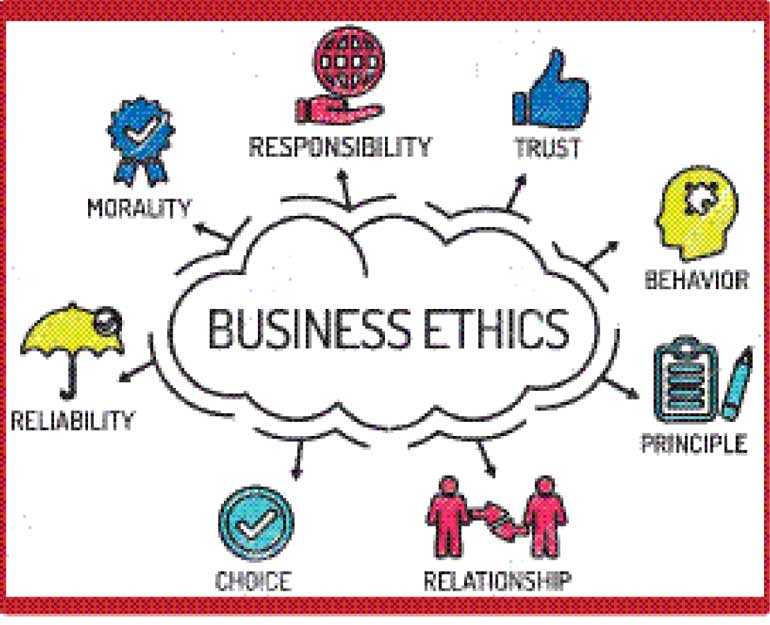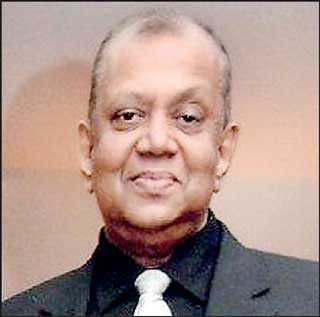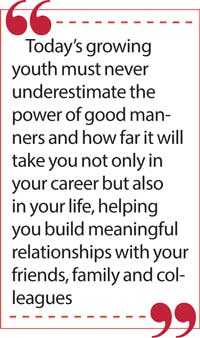Monday Feb 23, 2026
Monday Feb 23, 2026
Tuesday, 5 November 2019 00:00 - - {{hitsCtrl.values.hits}}

By Nirmalan Nagendra
Today’s workforce
In this day and age, we cannot stress on the importance of work ethic. Industry reports say that today’s workforce is not only made up of Baby Boomers and Generation X’s but also Millennials and a new  addition known as Generation Z’s. Each of these two demographics bring their own set of skills and talents to the table, and this is now changing the way we do work and causing a shift in our industry dynamics.
addition known as Generation Z’s. Each of these two demographics bring their own set of skills and talents to the table, and this is now changing the way we do work and causing a shift in our industry dynamics.
But how are these two generations impacting the way businesses work? Let’s dive deep into it. Millennials and Gen Z’s are different to those from previous generations – their needs at work are different, their expectations from businesses and governments are different to the traditional way our previous generations have worked in the past.
And the shaper of these demographics are fiscal and societal factors by previous generations. In today’s article, we’re diving deep into how certain things must remain the same despite what other changes take place.
Manners should never change
But, despite the change in the workforce there should be no change in the way one handles themselves at work. Simple manners are something everyone must embrace despite their age. For example, many today think that getting late for a meeting is acceptable, as long as you show up to the meeting – and showing up late is perfectly fine without having informed the host or the rest of the party that you are running late.
Today it’s considered a norm to understand that with the growing traffic and workloads, people will be late but will arrive nevertheless. But the simple act of not informing in advance affects the productivity of the meeting and people who’ve spent their valuable time by already being there in advance.
We must often think, would we like it if someone was late for a meeting without an excuse? If you answered no, then make sure that next time you’re running late for a meeting to inform your host in advance.
Doing beyond what is expected from you
Many years ago, something I observed during my stint working in the Bahamas was, a server would only serve the guest their drink and do nothing beyond it. So what happens when the patron is done with their drink? Taking back the empty glass was thought to be the job of the steward. In today’s context this would look very odd – but back in the day this was the norm in Bahamas. 
When diving deep into why the staff would act this way, I found out that with the influx of tourists, the workforce didn’t understand the power of their guests. The locals (including the staff) came to take an upper hand based on the tourists visiting the country to enjoy its beauty.
So due to the beauty of the country and exclusivity, natives didn’t understand that business was brought by these visitors. The locals did not consider the importance of customer experience – so they never stepped up and did beyond what was required.
However when it comes to work, it’s always important to step up beyond your immediate job description and do something beyond your general line of work. Your manager may not recognise your hard work and efforts at a whim or provide you high praise then and there, but these would be taken into account when your appraisals and promotion is due.
The power of over-performing
Stemming from how we must at times do beyond what is expected, sometimes it’s great to over-perform. This technique can be called ‘under-promising but over-delivering’ – how you must never take too much onto your plate and only promise to deliver what is within your capacity.
When delivering the final result, try to deliver beyond what your manager or client expected. Never take on too much work in the hopes of impressing your boss or client. Taking on more than your purview is only setting yourself up for disappointment.
However, do keep in mind not to make this a constant trick – as you do this more frequently your client or manager may automatically expect an over-delivered result. And in that case, if you fail to do so, then you would have to bear the brunt of the mistakes of ‘getting their hopes up and failing to perform’.
Another factor to keep in mind is your manager or client may not like it if you deliver what is beyond expected. Especially if you have already scoped out your requirement and end result. Sometimes, delivering what is beyond their expectation may backfire on you, causing you to, at an extreme case, even lose your job or project.
Therefore, do keep in mind to carefully consider the instances when you will choose to over-perform and over-deliver as to not get on the wrong foot of your client or manager. A word of advice on how to go about with this is to first get to know who you are dealing with, their personality and also the project or set of tasks you are handling. After familiarising yourself with the work environment, you can choose to under-promise and over-perform.
Empathy – the often underrated quality
Empathy is an essential soft skill that one must learn, to be not only a better leader but also a better person. This is not something you can learn off a book and expect to perfect it the very next minute; but instead to be empathetic, one must constantly practice the skill to become a true master of it.
Being empathetic would also make you a more understanding person, helping you to look at situations through multiple perspectives as well as take decisions after thoroughly considering all the possible ways it would affect multiple stakeholders.
The act of being an empathetic individual must also make you out to be someone who always appreciates the good in others, and congratulates them on a job well done no matter how small the task may be.
A good habit to cultivate is to always be as positive as you can be so that this would motivate them to do better in the future. To cultivate this habit, put yourself in the position as the other individual and imagine how happy and appreciated you would feel should someone thank you for your hard work. This is not only being a better person, but also acting empathetically as you would be putting yourself in another person’s shoes to look at a situation through their perspective.
In conclusion
When engaging in business, there are a few golden rules – it’s important to be punctual, maintain honesty, have the correct attitude and do the best you can do. It’s imperative that today’s generation knows the importance of stepping up and doing beyond what is expected rather than doing what is merely needed or stated on their job description.
Today’s growing youth must never underestimate the power of good manners and how far it will take you not only in your career but also in your life, helping you build meaningful relationships with your friends, family and colleagues.
After all, when you are old and no longer capable of the fast-paced activities of your days of youth, you will look back and only wish you built deeper and stronger relationships with people – you would not be thinking that you should’ve bought the latest model of the most expensive sports car. So build strong relationships and be the better person this world needs. Hatred only begets hatred, so be kind. As Mahatma Gandhi once said: “You must be the change you wish to see in the world.”
(The writer is a veteran hotelier with over 33 years of experience. He is an accountant by profession turned Head of Operations. In addition to his hotelier background, he possesses over 20 years of strong financial administration at five-star hotels across the globe. His expertise is spread throughout his various stints in various regions around the world including the US, The Caribbean, Middle East and Singapore as well as holding the position of an operation and commercial oriented Director of Finance, with a wealth of business experience. He has worked across international hotels chains including Park Hyatt Jeddah-Marina Saudi Arabia, Le Royal Meridien Abu Dhabi, Al Aqa, Kwait, Forte Nassau Beach Bahamas and Sandy Lane Hotel Barbados. He is currently a member of British Association of Hospitality Accountants, the Institute of Management UK, and the Hotel & Catering International Management Association. He is a highly result-oriented professional, who believes in cohesive work environments, hiring for attitude, on-time delivery with 90% accuracy rather than late delivery with a 100% accuracy rate. He believes that teamwork certainly makes the dream work. He is now retired and consults professionally to a leading international consulting firm, whilst residing in his home in Colombo with his wife and pet Labrador named ‘Penny’. You can contact him on [email protected].)